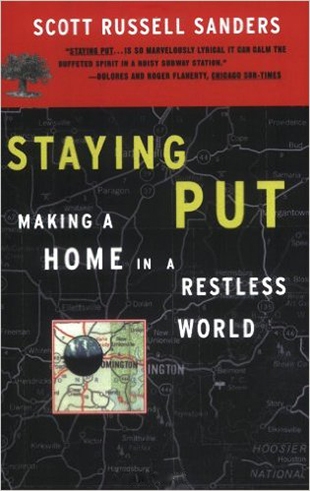"What does it mean to be alive in an era when the earth is being devoured, and in a country which has set the pattern for that devouring? What are we called to do? I think we are called to the work of healing, both inner and outer: healing of the mind though a change in consciousness, healing of the earth through a change in our lives. We can begin that work by learning how to abide in a place. I am talking about an active commitment, not a passive lingering. If you stay with a husband or wife out of laziness rather than love, that is inertia, not marriage. If you stay put though cowardice rather than conviction, you will have no strength to act. Strength comes, healing comes, from aligning yourself with the grain of your place and answering to its needs.
" 'The man who is often thinking that it is better to be somewhere else than where he is excommunicates himself,' we are cautioned by Thoreau, that notorious stay-at-home. The metaphor is religious: to withhold yourself from where you are is to be cut off from communion with the source. It has taken me half a lifetime of searching to realize that the likeliest path to the ultimate ground leads through my local ground. I mean the land itself, with its creeks and rivers, its weather, seasons, stone outcroppings, and all the plants and animals that share it. I cannot have a spiritual center without having a geographical one; I cannot live a grounded life without being grounded in a place.
"In belonging to a landscape, one feels a rightness, at-homeness, a knitting of self and world. This condition of clarity and focus, this being fully present, is akin to what the Buddhists call mindfulness, what Christian contemplatives refer to as recollection, what Quakers call centering down. I am suspicious of any philosophy that would separate this-worldly from other-worldly commitment. There is only one world, and we participate in it here and now, in our flesh and our place."
